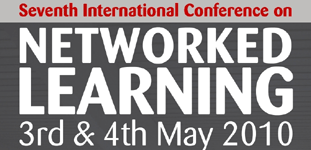

Technology-enhanced inquiry-based learning in higher education: what does the evidence-base tell us?
Professor Philippa Levy, Anna Nibbs
Centre for Inquiry-based Learning in the Arts and Social Sciences, University of Sheffield
Abstract
There is at present considerable international interest in strengthening the role of inquiry and research in the undergraduate experience. Against this background, the term ‘inquiry-based learning’ (IBL) is in increasing usage, to describe a range of pedagogical approaches in which student inquiry drives the learning experience. The conceptualisation of IBL is contested but often it is described as an ‘umbrella term’ encompassing approaches such as case- and problem-based learning. Digital technologies play an important role in IBL pedagogy and arguably there is a close affinity between the ethos and practices of networked learning, IBL and Web 2.0. However, the evidence-base that focuses specifically on the use of technology in IBL, although relatively small, is highly fragmented. Therefore, for this in-progress project, funded by the UK Higher Education Academy, we are drawing together material from disparate disciplinary and specialist/practitioner fields to offer a critical review and synthesis of research evidence on the use and potential of digital technologies to support IBL. As part of this, we are mapping conceptualisations and practices of technology-enhanced IBL according to a number of dimensions of IBL design and facilitation including: knowledge-orientation; inquiry-framing; process support strategy; technology-strategy. Our poster offers a preliminary analysis, identifies a number of questions that arise, and suggests areas in which further research is needed.
| About NLC | Welcome Messages| Acknowledgwments | Conference Proceedings| Keynote Speakers| Index of Presenting Authors| Contact |